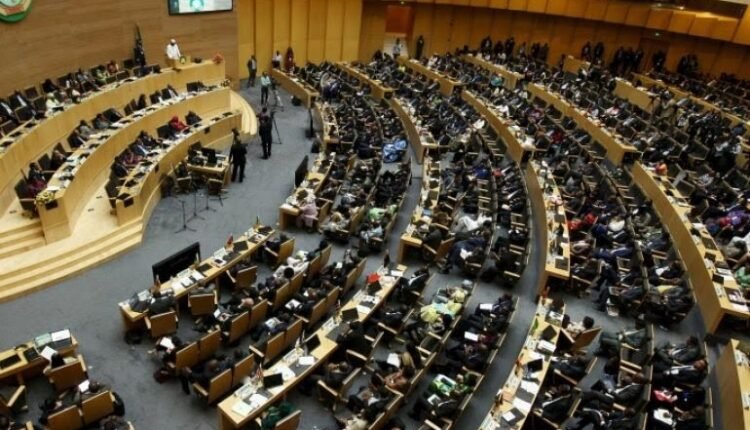Algeria and Morocco Compete for the Second Position in the African Union

Addis Ababa – Sudanhorizon
The competition for the top positions in the African Union Commission is intensifying day after day. It is known that the position of the Chairman of the Commission comes from the head of the executive body of the African Union. The term of the current Chairman of the Commission, Chadian Moussa Faki, ends in February 2025. He held the position for two terms that began in 2017. Four people are now competing to succeed him as Chairman of the Commission: Djiboutian Mahmoud Ali Yusuf, Kenyan Raila Odinga, Mauritian Anil Gayan, and Malagasy Richard Randriamandrato, all from the East African region.
The election of the Chairman of the Commission is done by secret ballot by a two-thirds majority of the member states that have the right to vote (geographical region by rotation) and the term of office is four years, renewable once. The elections will be held at the next African Summit in February 2025. The two candidates who appear to be most likely are Raila Odinga and Mahmoud Ali Yusuf. Mauritian Anil Gayan, the former minister, is not very well known outside his country, while Malagasy Richard Randriamandrato was foreign minister for a few months, before being dismissed from his post for voting in favor of Ukraine at the United Nations without the approval of the country’s president.
If this battle is of the greatest interest, there is another battle taking place behind the scenes, which concerns the remaining positions – other than the president and vice-president – namely the six commissioner positions, which will be redistributed the day after Moussa Faki Mahamat’s term ends, the most prominent of which is the strategic position of deputy chairperson of the African Union Commission, as well as the commissioner for peace and security of the union, the commissioner for social affairs, and the commissioner for education, science, technology and innovation.
The election process in February 2025 will be based on the principle of regional rotation, which stipulates that the Eastern Region will nominate male and female candidates for the position of President, the Northern Region will nominate male and female candidates for the position of Vice President, and the remaining three regions (Central, Southern and Western) will nominate at least two candidates (one female and one male) for the six Commissioner positions.
According to the African Union website, a Panel of Eminent African Personalities, consisting of five (5) personalities, one for each region, was appointed in February 2024 to oversee the pre-selection of candidates for the eight positions. The Panel of Eminent African Personalities has since developed job profiles and competency requirements for leadership positions, and the evaluation process for all candidates is based on the skills and competencies identified for each senior leadership position. The Committee also takes into account gender rotation in the elections, so that if the President is a man, a woman is elected as Vice President and vice versa.
In light of this, Algeria and Morocco are competing for the position of Vice-President of the Commission, which will be entrusted to a representative of the Maghreb (North Africa region). François Soudan, editor-in-chief of the magazine “Jeune Afrique”, confirms that there are four women competing for this position “Number 2 in the African Union”, including Moroccan Latifa Akharbach and Algerian Salma Malika El Haddadi.
Follow-ups by the news website Sudanhorizon indicate that the candidates competing for the position of President of the Commission will participate in a live television debate broadcast to African citizens. The African leadership debate, called (Mjadala Africa), is a platform that provides candidates with the opportunity to clarify their vision of how to lead Africa’s transformation by implementing the mandate of the African Union and Africa’s Agenda 2063.
It is hoped that the new term will witness the selection of the best elements that can confront challenges in the spirit of the times and flexible diplomacy that spares the continent and its peoples from fighting and war so that they, like others, can enjoy peace and stability.
Shortlink: https://sudanhorizon.com/?p=1321

